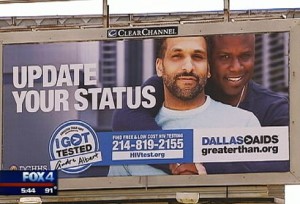[Content Note: Homophobia, Sexual Orientation Change Efforts, Infertility]
This morning, Maggie Gallagher used her column at the National Review to chime in on the law New Jersey governor Chris Christie recently signed that prohibits licensed therapists from offering “conversion therapy” to minors. Of course, Maggie is dead set opposed to the new law and considers this the latest example of Christian persecution and infringement on (Christian) religious liberties.
Of course, in decrying this law, she fails to exercise her religious liberty to be honest, something that I’m fairly certain is supposed to be pretty central to the Christian faith. She starts out by decrying a press release that someone wrongly slapped her name on it, offering the following criticism:
I dislike using language that portrays gay people as “homosexuals” who are “tormented” by same-sex desires.
Um, since when? Let’s go to Gallagher’s own words:
Please note, this is different from saying that homosexuals are mentally ill. In a simple biological framework, abstracted from all religion and morality, homosexuality is like infertility. It is a sexual disability, preventing certain individuals from participating in the normal reproductive patterns of the human species.
While Maggie can technically argue that she’s not saying gay people are mentally ill the above statement, I’m not sure that calling them “disabled” is any better. And no, my being gay is not the same as my being infertile (and I am deeply sympathetic and sorry to anyone who is infertile and hurt by Gallagher’s choice to appropriate what may be a painful reality for them). To the best of my knowledge, I am perfectly capable of sexually reproducing, either by having sex with a fertile woman or via sperm donation. My being gay simply means I am not inclined to engage in sexual or romantic relations with women. There’s a whole world of difference between the two things she’s comparison and the comparison strikes me as insulting and demeaning to everyone caught by it.
So yeah, for her to say that she “dislikes” it when gay people are portrayed as “homosexuals” who are “tormented” by their desires when she has much said things just as horrible? Completely dishonest.
Of course, her continuing statement in today’s column suggests she’s not really opposed to saying that gay men (and note how she’s now going to erase all the lesbians in addition to the bisexuals she’s already been erasing) are “tormented” by their sexual desires so much as she’d in support of portraying all men as so tormented:
Among other things, as far as I can see for most men, of whatever orientation or state in life, being tormented by sexual desire is pretty much the human condition for long stretches of life, rather than an unbearable cause for condescending pity.
I don’t know what men Gallagher is hanging out with. I certainly don’t feel tormented by my sexual desires. I don’t get the impression that most of the men — regardless of sexual orientation — I know feel particularly tormented, either.
Of the bill itself, Gallagher makes the following claim:
Governor Christie just endorsed a law that thus excludes many gay teens who wish to live in accordance with Bible-based values from the circle of care; he has outright banned chastity as a goal of counseling.
Now having looked at the text of the bill, I admit that it’s a bit confusing, and it’s not immediately clear to me what qualifies as “attempts to change behavior” as mentioned in the bill. However, I will note what Dr. Warren Throckmorton said back in May concerning the bill and the Sexual Identiy Therapy Framework he promotes:
I believe SITF would be safe if this bill passes. I have discussed this issue with some of the bill proponents and they agree. In any case, since we do not attempt to change orientation, we are not doing anything covered by the bill. I do not attempt to reduce attractions since I don’t think it is possible in any psychological manner. I think people succeed in handling their attractions in such a way as to better comport with their beliefs. Avoiding situations and practicing religious disciplines may help give a sense that attractions are being reduced but I don’t think this is what the NJ bill is aiming at. If ever it is, I will be more vocal in opposition.
Note that Throckmorton actually talked to the bill’s proponents about his questions regarding the law and SITF, which does consider helping a client remain celibate a valid course if the client decides it’s the best choice for hir life. I’m inclined to take his interpretation of the law and how it will be applied compared over Gallagher’s who admits that she hadn’t even looked into the law before yesterday. I sincerely doubt she contacted any of the bill’s backers for clarification.
Acknowledgements:
- I found out about Maggie’s commentary on the bill via The New Civil Rights Movement.
- I gleaned the link to the bill’s text from Dr. Throckmorton’s blog.
- I found the link to Gallagher’s quote comparing homosexuality to infertility through GLAAD’s Commentator Accountability Project page for her.




